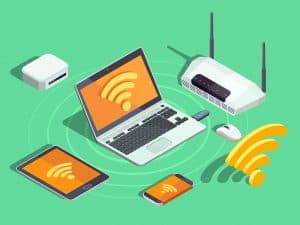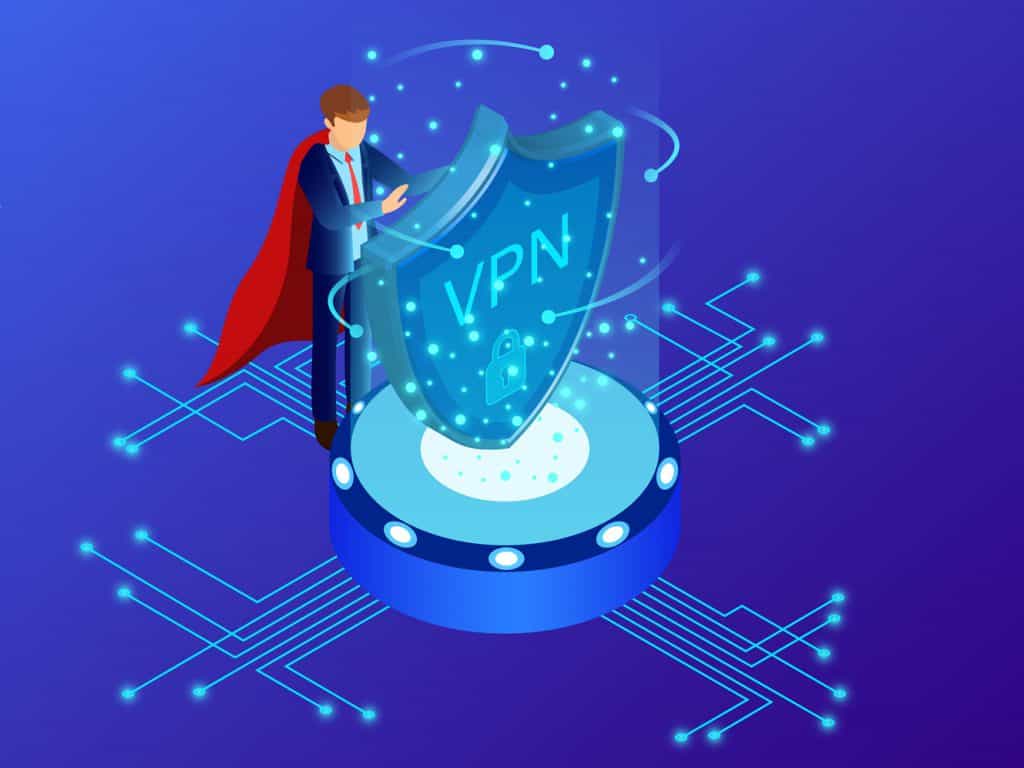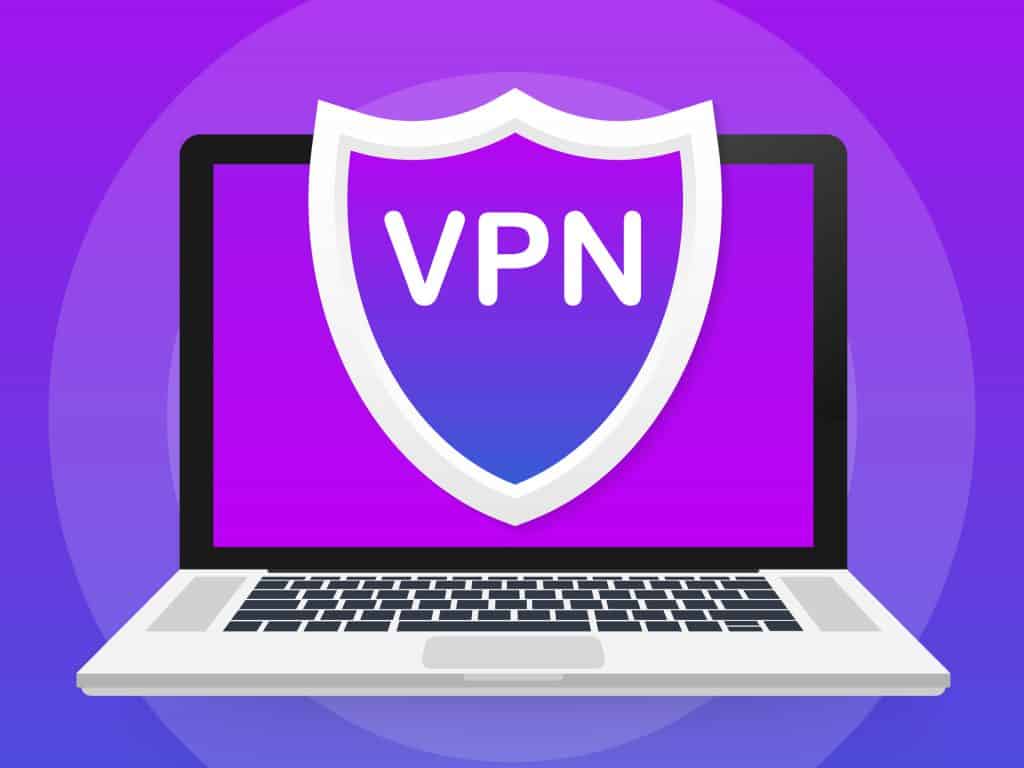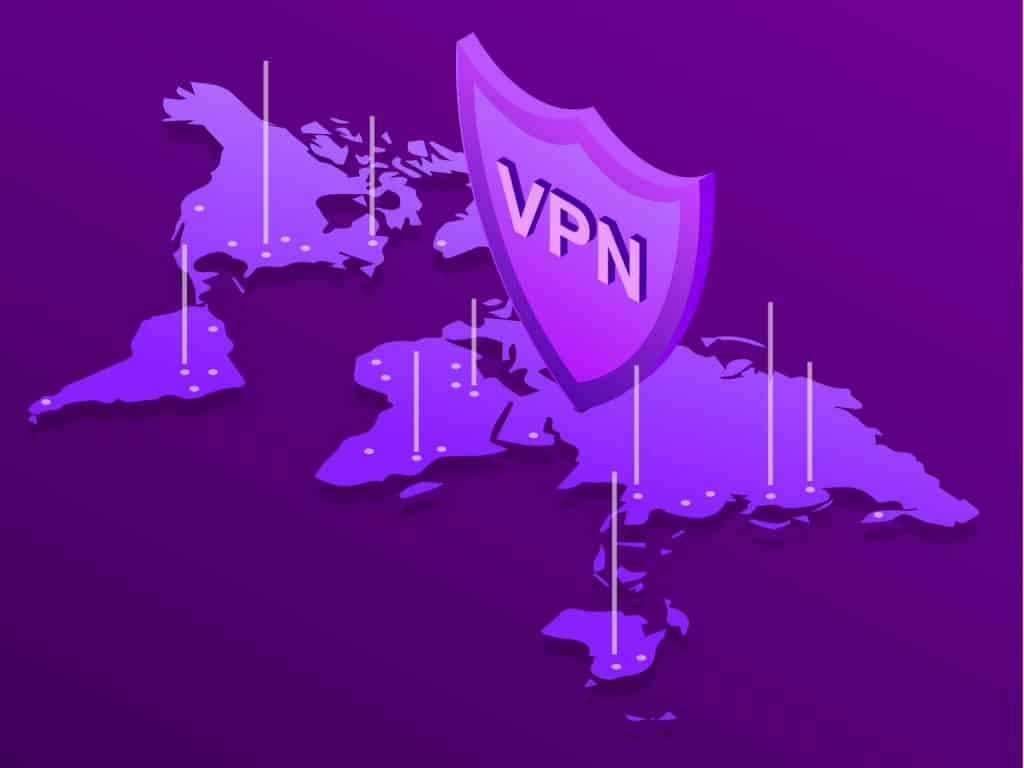What Is a VPN Router?
- By Douglas Moore
- July 7, 2020
Disclosure: Some links in this guide are affiliate links. We may get paid if you buy something or take an action after clicking one of these links, at no additional cost to you. It’s how we fund the work that it takes for us to create and maintain these guides.

One of the main reasons people shy away from using a VPN on their routers is that they think that setup is difficult. In fact, it’s easier than you may think. As long as you have a router that is compatible with the VPN’s software, you’re good to go. Additionally, some routers can have their firmware updated to be VPN-compatible, though this may require a slightly more tech-savvy user.
In any case, let’s get to the meat of it – what a VPN router is, and why you may want one. Of course, we’ll also go over some drawbacks of connecting your router to a VPN.
What Is a VPN Router?
A VPN router is simply a router on which you install the VPN’s client software. Once your router has a VPN client installed on it, all the devices in your network will enjoy the same perks of privacy, security, and access to geo-restricted content. This is especially useful for homes or offices with multiple users and devices. Although there are exceptions like SurfShark, which allows an unlimited number of connected devices from a single account, most VPNs offer a limited number of simultaneous connections, usually between 5 and 10. Well, if you connect your router to the VPN, it will only count as one connection (or device), and through it, you’ll be able to secure as many devices as your router can handle (which is well above 10).
As we briefly mentioned, not all routers work with VPN client software. You’ll need to consider your options carefully to find the best VPN router if you don’t already own one. We generally recommend routers that are VPN-compatible without the need for firmware for the average user. More techy folks can also choose routers that require firmware updates for compatibility, but the process is a tad more convoluted. Still, some routers do require simple enough processes for firmware updates.
Why Would You Need A VPN Router?
A VPN router may not be a necessity for everyone. You would most likely need to install a VPN client on your router if you have lots of users and devices in your home, office, or business. But there’s much more to it. Let’s look at the main benefits you could enjoy by using a VPN router.
- Protect more devices: We already went over this – you can connect a lot more devices to a VPN from a single account if you connect them via router.
- VPN compatibility for types of software and devices in your network:Generally, VPNs only have compatible software for the most popular types of PC and smartphone platforms, like Windows, Linux, Mac, Android, and iOS. However, you may have other devices, like smart TVs and gaming consoles, which can’t be directly connected to a VPN. Installing a VPN on your router, and then connecting those devices to the router, will allow you to share the benefits of a VPN across your entire network, providing these additional devices with the necessary encryption for privacy, security, and access to all Netflix libraries.
- Add a layer of privacy and security:If you’re really serious about the privacy and security of your network, you can get two VPNs to double the encryption. You could connect one VPN to your router, providing network-wide protection, and the other one to your individual devices. Of course, this is a bit of an overkill for the average user and may result in slower online speeds.
- Simplify VPN use: If you install VPN client software on your router, you won’t have to go through setting it up on each individual device. What’s more, you’ll only have to enter your login details once, and not worry about it every time you turn on a device. Another perk here is that if you forget to set your VPN to activate automatically when you turn on a device, it will still remain secure. With that said, if you fail to connect individual devices to a VPN client, they won’t be secure outside your network. So to enjoy VPN security when using public WiFi, for instance, you’ll still need the app on your phone, PC, or tablet.
Now, let’s look at some of the drawbacks of installing a VPN on your router:
- Price: Routers that are compatible with VPN clients aren’t always low budget. Still, you can find a great VPN router that’s affordable, if you know where to look.
- Some tasks are more difficult:When you have VPN native apps on your devices, switching between servers is easy. On a router, it’s more difficult. You’d have to access the router interface if you want to change the original server you used during configuration.
- Potentially slower speeds: VPNs, by default, may slow down your internet speed because of the encryption protocols that take place and the distance to the server you’re connected to. If a router is handling the encryption of traffic for a whole network, it may have a negative effect on internet speed.
A Few Words Before You Go…
There you go – now you’re more familiar with what a VPN router is and what it does. Having looked over the pros and cons of using a VPN router, you can make up your mind and decide whether you need one in your home or business network.
View Related Articles

VPNs and Your ISP
It’s no news that VPNs and ISPs have a (now) long-standing love-hate – no wait, it’s mostly hate – relationship. However, some ISPs have been known to make money on the side, too. Namely, some ISPs collect your data and sell it to third parties, such as marketing companies.

How to Turn Off Your VPN On Windows and Android
You probably already know all the benefits you can enjoy from using a VPN. VPNs use encrypted tunnels to reroute your online traffic through their own servers, so your private online activities won’t be visible to anyone including ISPs, governments, employers, and so on.

How to Change Your IP Location with a VPN
A lot of users rely on their trusty VPN to give them access to geo-restricted streaming services and websites. You can’t access the Netflix US library? No problem, a VPN can help you do just that. Let’s take a look at why you would change your IP to a different location using a VPN and how to do it.
